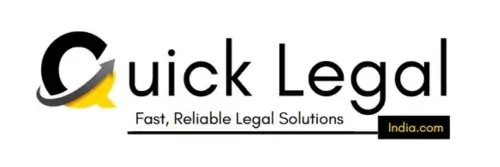PF & ESIC Return Filing in India
Simplify Your Compliance — Stay Legal, Stay Safe
Managing your business’s compliance obligations under the EPF and ESIC Acts can be time-consuming and confusing.
- Expert Guidance
- No Hidden Charges
- Dedicated Support
- 100% Online Process
- Startups & Small Businesses Welcome
Free Consultation by Expert
What is PF & ESIC Return Filing?
PF & ESIC Return Filing refers to the monthly submission of employee-related contribution details by employers to the respective government portals—EPFO (Employees’ Provident Fund Organisation) and ESIC (Employees’ State Insurance Corporation).
Why Is PF & ESIC Return Filing Important?
Legal Compliance
Every registered employer under EPFO and ESIC is legally required to file monthly returns.
100% Compliance
We ensure your filings are accurate and comply with the latest tax rules.
Affordable Plans
Tailored packages for small businesses, corporates, and individuals.
PAN India Service
We serve clients across India with end-to-end online support.
Benefits of PF & ESIC Return Filing
1. Legal Compliance
Stay on the right side of the law by fulfilling your monthly compliance obligations under the EPF & ESIC Acts.
2. Avoid Penalties & Fines
Timely return filing helps avoid late fees, interest charges, and legal penalties that can go up to ₹5,000 or more.
3. Boost Business Credibility
Being compliant builds your brand’s trust and reputation with:
Employees
Government bodies
Clients and investors
4. Eligibility for Government Tenders & Schemes
Many government projects and MSME schemes require proof of PF/ESIC compliance.
5. Streamlined Payroll & Record-Keeping
Regular filing ensures accurate financial records and smooth HR/payroll management.
Pre-requisites for TDS Filing
Before filing PF and ESIC returns, make sure you have the following details
1. PF & ESIC Registration Numbers
You must be registered under EPFO (for PF) and ESIC (for insurance benefits). These registration numbers are mandatory to begin return filing.
2. Employee Details
Employers must collect accurate employee details including full name, date of birth, gender, date of joining, PAN, Aadhaar number, bank account details, and their UAN (Universal Account Number for PF) or IP number (for ESIC).
3. monthly salary sheet
payroll summary must also be prepared. This should include basic wages, total earnings, deductions, leave details, days worked, and any loss of pay. Based on this data, employers need to calculate the employee and employer contributions for both PF and ESIC, keeping in mind the wage ceilings—₹15,000 for PF and ₹21,000 for ESIC.
4. Challan Payment Details
Bank account details and authorization to make payments for monthly challans generated after return filing.
Documents Required
- PF & ESIC Registration Certificates
- PAN Card
- Employee Details
- Monthly Salary & Payroll Sheet
- Attendance Register
- Contribution Calculation Sheet
- Previous Challans (if any)
- Bank Account Details
- Login Credentials
Free Consultation by Expert
Talk To Our Expert Team
Enquiry Form

Get Consultation

Service Delivery
Enquiry Form
Simple form, faster support.

Get Consultation
1K+ clients trust our low-cost service.

Service Delivery
Top-rated (4.9★) with 50+ locations.
Common Questions
Most Popular Questions
Any business registered under the EPFO or ESIC Act is required to file monthly returns. PF filing is mandatory for companies with 20 or more employees, and ESIC filing is required for companies with 10 or more employees.
Both PF and ESIC returns must be filed on or before the 15th of every month for the previous month’s salary cycle.
Yes. Even startups with fewer than 20 employees can voluntarily register and file returns. It builds credibility and ensures early compliance.
Late filing can lead to penalties, interest charges, and even legal notices. For PF, damages may be up to 25% of dues, and ESIC fines can go up to ₹5,000.
You’ll need PF & ESIC registration details, employee salary sheets, attendance records, UAN/IP numbers, previous challans (if applicable), and login credentials for the respective portals.
Form 16 is issued to salaried employees and Form 16A is for non-salary TDS (e.g., contractor, rent, commission). These forms are generated after TDS returns are filed.
Yes. In such cases, you must file a ‘Nil Return’ to maintain compliance and avoid system-generated notices.
Absolutely. Quick Legal offers complete solutions — from registration to monthly filing, challan payments, employee onboarding, and expert compliance support.


